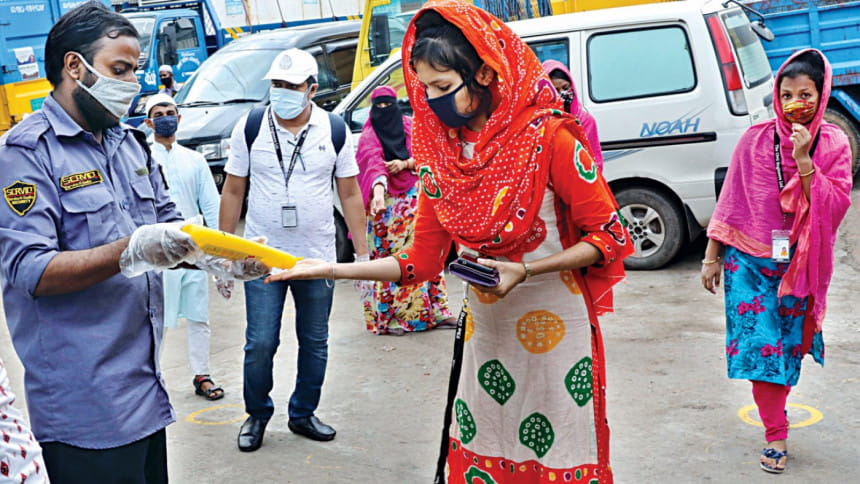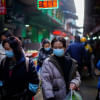Protect workers now and after lockdowns ease: ILO

As pressures mount on countries to ease their lockdown restrictions, the International Labour Organization (ILO) has urged the Bangladesh government to take action to prevent and control the spread of Covid-19 in the workplace, with active involvement and dialogue with employers' and workers' organisations.
All employers need to carry out risk assessments and ensure their workplaces meet strict occupational safety and health criteria beforehand, to minimise the risk to workers of exposure to Covid-19, said the ILO in a statement today.
Without such controls, countries face the very real risk of a resurgence of the virus. Putting in place the necessary measures will minimise the risk of a second wave of contagion at the workplace.
Director-General of the ILO, Guy Ryder said, "The safety and health of our entire workforce is paramount today. In the face of an infectious disease outbreak, how we protect our workers now clearly dictates how safe our communities are, and how resilient our businesses will be, as this pandemic evolves."
"It is only by implementing occupational safety and health measures that we can protect the lives of workers, their families and the larger communities, ensure work continuity and economic survival," Ryder added.
Country Director of ILO Bangladesh, Tuomo Poutiainen, said, "As some industries begin to slowly resume operations, the ILO has developed a three-pronged strategy to ensure a safer return to work in the Bangladesh context. The first step is the adoption of several safety and health measures at work based on dialogue between employers and workers, and a shared understanding of coronavirus risks."
"To prevent transmission of the virus and safeguard workers, the ILO has developed Covid-19 specific OSH guidelines, together with the Department of Inspection for Factories and Establishments (DIFE). Furthermore, the ILO is recommending employment retention through work-sharing and reskilling, in addition to essential social protection measures to ensure access to subsistence allowance, basic healthcare and income security for formal and informal sector workers."
In particular, risk control measures should be specifically adapted to the needs of workers at the frontline of the pandemic. These include health workers, nurses, doctors and emergency workers, as well as those in food retail and cleaning services.
The ILO also highlighted the needs of the most vulnerable workers and businesses, in particular those in the informal economy, migrant and domestic workers. Measures to protect these workers should include -- among others -- education and training on safe and healthy work practices, free provision of personal protective equipment (PPEs) as needed, access to public health services and livelihood alternatives.
Director-General of World Health Organization (WHO) Tedros Adhanom Ghebreyesus said, "The Covid-19 pandemic has highlighted the urgent need for strong national programmes to protect the health and safety of health workers, medical professionals, emergency responders, and the many other workers risking their lives on our behalf."
To ensure a safe return to work and to avoid further work disruptions, the ILO recommends: mapping hazards and assessing risks of contagion in relation to all work operations, and continuing to assess them following a return to work.
ILO suggested to improve ventilation in the work place, regularly cleaning surfaces and providing adequate facilities for handwashing and sanitisation, providing PPEs to workers where necessary and at no cost.
It also suggested for providing arrangements for isolating suspected cases and tracing every contact, providing mental health support for staff, and providing training, education and informational material about health and safety at work, including proper hygiene practices and the use of any workplace controls (including PPE).
Poutiainen said ILO is committed to work in unison with the Bangladesh government, employers and workers to help protect the nation's millions of workers against the ravages of Covid-19, hunger and poverty.

 For all latest news, follow The Daily Star's Google News channel.
For all latest news, follow The Daily Star's Google News channel. 








Comments